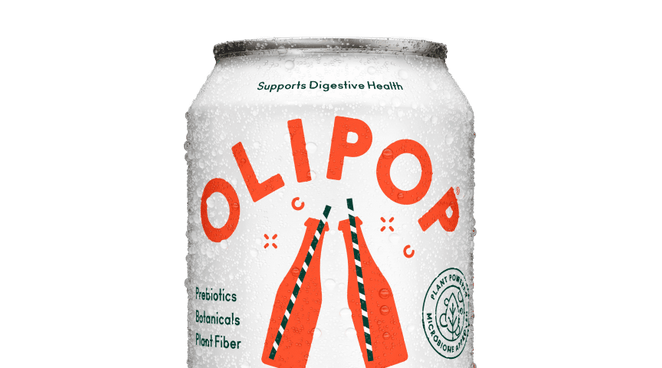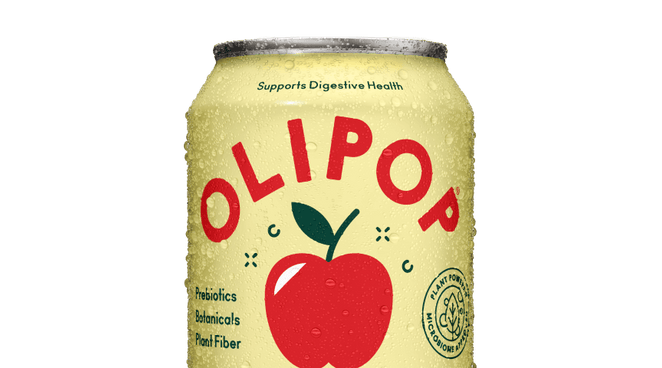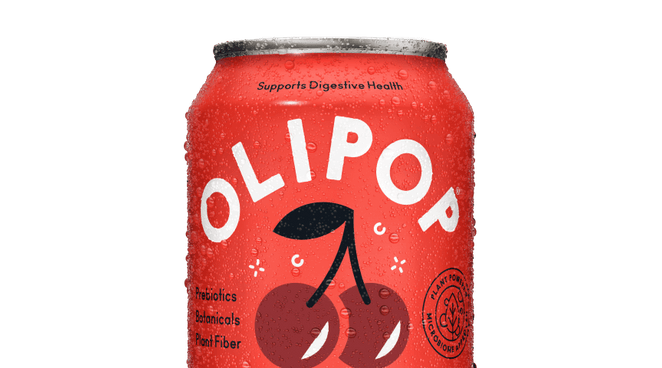Editor's Note: This article is reviewed by Lauren Manaker MS, RDN, LD, a registered dietitian and a paid contributor to OLIPOP. She specializes in digestive health and reviews OLIPOP content for scientific accuracy.
Jerusalem artichokes, also called sunchokes, are becoming a popular item in a slew of recipes and food products --- and for good reason! Not only do Jerusalem artichokes offer up a unique flavor that levels up any food or drink that it's paired with, but it has unique health benefits that are hard to match.
Curious to learn more? In this article, we'll address everything you need to know about this high-nutrient vegetable including what it is, how to eat it, and why it's so good for you. You'll be a Jerusalem artichoke pro in no time!
What Is Jerusalem Artichoke?
When people think of an artichoke, they often think of the veggie with the green leaves that you dip in melted butter with the soft "heart" in the middle. But if you accidentally order a Jerusalem artichoke instead of the leafy variety, it might surprise you to find something entirely different.
Ironically, Jerusalem artichokes are neither an artichoke nor do they come from Jerusalem. Instead, the Jerusalem artichoke is a root-like tuber that looks like a ginger root but is starchy like a potato. And instead of being an Israeli food like its name implies, Jerusalem artichokes are native to North America where Native Americans originally cultivated them. [1]
In fact, you will not find any Jerusalem artichokes growing in Jerusalem. The plant got its name because Italian settlers in North America called it girasole, the Italian word for sunflower. And the name is fitting since the root is a member of the sunflower family.
But like any game of telephone, words change over time. And the word girasole evolved into Jerusalem. This is why today, we have a non-Israeli veggie whose name fools many people.
How to Eat Jerusalem Artichoke
There are several ways to eat Jerusalem artichoke! Think of the vegetable like you would a potato. The preparation is very similar. You can enjoy it raw, roast it in the oven, boil it on the stove, mash it up, and so on.
And while you can certainly roast it and enjoy it like a potato, Jerusalem artichoke is also used as an ingredient in tons of food and drink products (like OLIPOP!). This is thanks to the combo of its neutral taste and potential health benefits.
Health Benefits of Jerusalem Artichoke
As we're often reminded growing up, veggies are good for your health. And the Jerusalem artichoke is no different! In fact, scientific evidence has established that diets that are low in fat and high in fiber-containing grain products, fruits, and vegetables could help reduce your risk of some types of cancer. [4]
Only 1 in 10 Americans eat the recommended amounts of fruits and vegetables every day. So adding Jerusalem artichoke to your diet will help you get closer to meeting your produce quota. [5]
Jerusalem artichokes in particular are a functional food or food that provides a health benefit beyond supplying nutrients. Thanks to the natural inulin this veggie contains, eating Jerusalem artichokes as part of a healthy diet can help support: [6]
- Improved gut health
- Healthy blood pressure & LDL cholesterol levels for those already in the normal range
- Increased feelings of fullness after consumption
Plus, since they are also a fiber-containing food, Jerusalem artichokes can help keep your overall health in check.
What Is Jerusalem Artichoke Inulin?
Jerusalem artichoke contains many beneficial vitamins, minerals, and nutrients. But the shining star is inulin – a fiber that the human body does not digest. Instead, this fiber essentially “feeds” beneficial bacteria that live in the gut, helping them thrive and supporting a healthy microbiota. [2]
When the bacteria “eat” the inulin fiber, they create a by-product from their digestion, creating short-chain fatty acids. These fatty acids make your gut more acidic, preventing less beneficial bacteria (like E.coli) from surviving. Additionally, short-chain fatty acids may help the body absorb certain nutrients. [3]
Where & When to Buy Jerusalem Artichoke
Jerusalem artichokes are in season during the fall and winter months. When shopping for the veggie, choose Jerusalem artichokes that are smooth, unbruised, and firm.
Avoid Jerusalem artichokes that have green sprouts, just like you would a potato. And like the potato, the Jerusalem artichoke peel is completely edible. Once washed, you can eat them raw or cooked.
You should store Jerusalem artichokes in a cool, dry, and well-ventilated area away from light (again- just like potatoes!).
Why Do We Use Jerusalem Artichoke in OLIPOP?
If you look at the ingredient list on a can of OLIPOP, you may be wondering what the heck a veggie like Jerusalem artichoke is doing in a can of soda. And, with all these health-supporting veggies in the can, how does this soda not taste like vegetables?!
Thankfully, Jerusalem artichoke extract is easily added to food and drink products like OLIPOP without negatively affecting the taste. And since it is soluble in water, it dissolves in all the OLIPOP goodness, leaving no weird consistency in your can. All while contributing to the whopping 9 grams of fiber per serving!
The extract from Jerusalem Artichoke doesn't have all the nutrients and health benefits of the whole vegetable. But drinking a soda that contains fiber from sources like Jerusalem artichoke means that you're supporting your gut and supplying your body with healthy nutrients.
So, feel free to sip on your OLIPOP knowing that drinking it is, at least in the health department, okie dokie, artichokie!
Sources
- Cieślik, E., and A. Gębusia. “The content of protein and of amino acids in Jerusalem artichoke tubers (Helianthus tuberosus L.) of red variety Rote Zonenkugel.” Acta Sci Pol Technol Aliment, vol. 10, no. 4, 2011, pp. 433-441.
- Fan CH, Cao JH, Zhang FC. “The prebiotic inulin as a functional food - a review.” Eur Rev Med Pharmacol Sci. vol. 20, no. 15, 2016, pp. 3262-5.
- Baxter NT, Schmidt AW, Venkataraman A, Kim KS, Waldron C, Schmidt TM. “Dynamics of Human Gut Microbiota and Short-Chain Fatty Acids in Response to Dietary Interventions with Three Fermentable Fibers.” mBio. Vol. 10, no. 1, 2019, pp. e02566-18. doi: 10.1128/mBio.02566-18.
- Ocvirk S, Wilson AS, Appolonia CN, Thomas TK, O'Keefe SJD. “Fiber, Fat, and Colorectal Cancer: New Insight into Modifiable Dietary Risk Factors.” Curr Gastroenterol Rep. vol. 21, no. 11, 2019, pp62. doi: 10.1007/s11894-019-0725-2.
- Center for Disease Control and Prevention. Only 1 in 10 Americans Get Enough Fruits and Vegetables. https://www.cdc.gov/nccdphp/dnpao/division-information/media-tools/adults-fruits-vegetables.html. Accessed June 3, 2021.
- Shoaib M, Shehzad A, Omar M, Rakha A, Raza H, Sharif HR, Shakeel A, Ansari A, Niazi S. “Inulin: Properties, health benefits and food applications.” Carbohydr Polym. Vol. 147, 2016, pp 2016. doi: 10.1016/j.carbpol.2016.04.020
- Jerusalem artichoke is not from Jerusalem; instead, they are native to North America and were cultivated by Native Americans.
- Jerusalem artichoke contains many beneficial vitamins, minerals, and nutrients. But the shining star is inulin – a fiber that supports your gut.
- OLIPOP includes Jerusalem Artichoke because it is soluble in water (aka it dissolves) while contributing to the whopping 6-9 grams of fiber per serving.


















